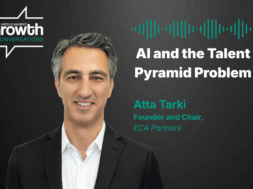Why Gifting Now Can Save on Future Estate Taxes
With the TCJA set to sunset at the end of 2025, PE professionals should consider moving assets out of their estate today

The provisions of the Tax Cuts and Jobs Act (TCJA) are set to expire in 2025, and while the implications for individual estates are top-of-mind, private equity professionals also have a lot to consider as the deadline looms.
With the market downturn we’ve all experienced so far in 2022, it’s counterintuitive to think that it is an optimal time to make sizeable gifts out of your estate. Why give away assets when they’ve already taken a hit on their portfolio? The answer is two-fold.
First, the opportunity to move discounted assets to another entity (trust or family member) given the current market environment allows the recovery and subsequent growth of those assets to happen outside of your estate. This is especially powerful for individuals whose total net worth is already in estate tax territory and subject to the current 40% estate tax rates on the federal level.
Second, and more importantly for those same individuals currently above the estate tax threshold, the window is dwindling before the TCJA provisions of 2017 sunset on January 1, 2026. For them, the urgency behind moving assets out of their estate ahead of the tentative reduction is amplified.
For private equity investors compensated in carried interest, taking advantage of today’s exemption thresholds may prove beneficial in the future.
For private equity investors compensated in carried interest, taking advantage of today’s exemption thresholds may prove beneficial in the future.
TCJA’s Impact on Private Equity
Signed into law in 2017, the TCJA increased the exemption thresholds for estate and gift transfer taxes. The current federal estate exemption in 2022 is $12,060,000 per person, or $24,120,000 shared between a married couple. Depending on which state you reside in, you may also be subject to state estate taxes as well. In Illinois, for example, the current estate exemption is $4 million per person, and unlike the federal limit, is not pooled together with your spouse’s $4 million.
With expectations that the federal estate limits could be reduced to $5 million per person (indexed for inflation) in 2026 following TCJA’s expiration, highly successful families may lose the opportunity to gift away nearly $14 million estate tax free over the next three years.
Related content: Crest of a Wave: The Distressed Investing Opportunity
But there are implications for PE investors compensated in carried interest, too.
This form of compensation aims to align general partners’ compensation with the overall performance of the fund, amounting to a share of the fund’s overall profits. Crucially, carried interest is considered a return on investment, not traditional income. As a result, it is typically taxed at a lower rate as capital gain.
While most private equity professionals are typically focused on managing income taxes, those who are compensated in carry, and who will potentially experience estate tax issues, should consider gifting. These individuals have the unique capability to gift their carried interest into an irrevocable trust in the early stages of fundraising, while utilizing a discounted valuation. If they’re able to shift their interest early on, the upside is now captured in a vehicle no longer subject to federal and state estate taxes. This strategy can be executed at any time, however it is most powerful at the genesis of a fund.
Important Considerations
If you are a private equity professional, a business owner, or someone who is working with business owners in the deal-making space, this strategy should be on the forefront of your long-term estate tax reduction plan.
What’s the downside in making these gifts? A common pain point is the fear of losing control of the assets that are gifted away, or potentially giving away too much unintentionally. Luckily for private equity professionals, there are different strategies that can be put in place that allow the growth of these assets to happen outside of their estate, while retaining some interest for themselves.
Related content: To Drive Value in a Down Market, Get Back to Basics
It’s also important to consider how and if these gifts will affect your future goals. The math may tell us that there are tax dollars to be saved, but at what cost to your lifestyle and future cash flow? All of these variables should be heavily considered when consulting with your team of professionals, including your estate planning attorney and wealth manager. Each can explain the implications of different gifting strategies, while understanding how they may affect the bigger picture long-term.
Ultimately, if you fall into the category of having estate tax liability today or in the future, now is the time to be thinking of accelerating gifts to take advantage of the current estate exemption amounts.
Disclosure: Investments involve risk and past performance may not be indicative of future results. Balasa Dinverno Foltz LLC (BDF) investment and wealth management strategy recommendations may not be profitable, suitable, or equal historical performance. BDF does not provide legal, tax, insurance, social security, or accounting advice. The information herein is provided solely to educate on a variety of topics, including wealth planning, tax considerations, insurance, estate, gift, and philanthropic planning. BDF’s current written disclosure statement discussing advisory services and fees is available for review at www.BDFLLC.com or upon request.
Sean Knoerzer CFP® joined BDF in 2014 and is a wealth manager at the firm. As part of BDF’s Financial Professionals practice group, Sean specializes in working with private equity professionals, offering solutions to their unique financial circumstances and providing clarity on complex financial planning needs. Sean is a Certified Financial Planner™ professional. Sean gained experience in financial planning and marketing at Busey Wealth Management, Prudential Financial Services and Lionheart Financial Wealth Management before joining BDF in 2014. Sean earned a Bachelor of Science in Agriculture and Consumer Economics with a concentration in Financial Planning at the University of Illinois. While at Illinois, Sean was a Co-Captain of the Illinois Men’s Rugby team. To learn more, contact Sean at sknoerzer@bdfllc.com
Matt Kocanda CFP® leads BDF’s Financial Professionals Practice Group. In this capacity he leads the strategy of serving the wealth management needs of private equity professionals, investment bankers, and asset managers. Matt also serves as a member of the firms Executive Team and is the Director of Client Experience and Growth. In this capacity, he helps drive both the day-to-day and strategic vision for client experience and growth at BDF. He is enthusiastic about creating a great client experience that helps BDF clients live their fullest life. Prior to joining BDF, he spent six years within Goldman Sachs’ Private Wealth Management Division. Matt earned his undergraduate degree in Finance from Indiana University’s Kelley School of Business. Matt is a Certified Financial Planner™ professional. To learn more, contact Matt at Mkocanda@bdfllc.com.


